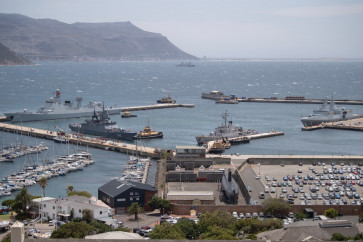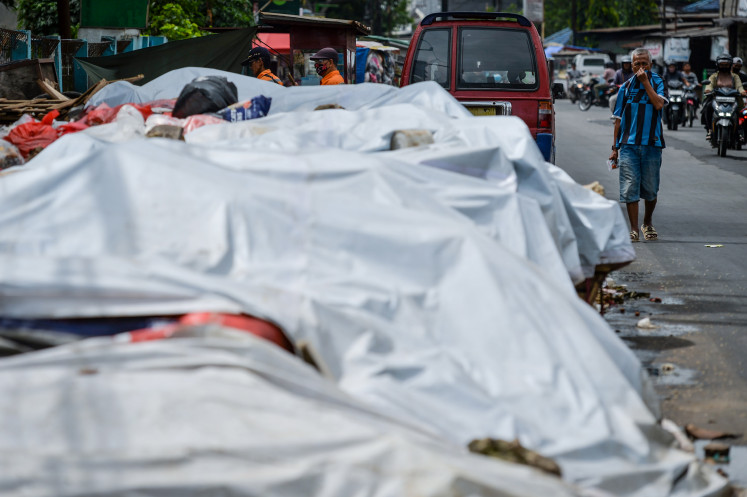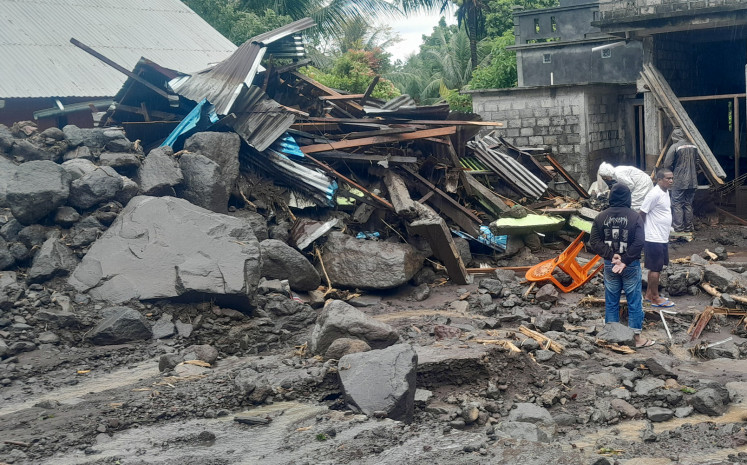Popular Reads
Top Results
Can't find what you're looking for?
View all search resultsPopular Reads
Top Results
Can't find what you're looking for?
View all search resultsCape Town agreement to fight IUU fishing, transnational organized crimes
The International Maritime Organization (IMO) and the Spanish government are organizing the Ministerial Conference on Fishing Vessel Safety and Illegal, Unreported and Unregulated (IUU) Fishing in Torremolinos, Spain, on Oct
Change text size
Gift Premium Articles
to Anyone
T
he International Maritime Organization (IMO) and the Spanish government are organizing the Ministerial Conference on Fishing Vessel Safety and Illegal, Unreported and Unregulated (IUU) Fishing in Torremolinos, Spain, on Oct. 21 to 23. The event aims to promote the Cape Town Agreement, a key IMO treaty on the safety of fishing vessels.
The entry into force of the agreement assists to deter the proliferation of IUU fishing, by establishing international safety standards for fishing vessels, mainly to enhance the standard of design, construction and equipment, including safety protections.
The agreement updates and amends the Torremolinos International Convention for the Safety of Fishing Vessels and the Torremolinos Protocol. The condition for the agreement to come into force is 12 months after the date on which no less than 22 states whose fishing vessels of at least 24 meters is not less than 3,600 have expressed to be bound by it.
The fishing vessels size regulated under the agreement comes under the rationale that such capacity vessels usually operate in the high seas. Smaller fishing vessels generally carry out commercial fishing under national jurisdiction and are thus subject to national regulations.
As of February 2019, the minimum number of states expressing consent to be bound by this agreement had not been reached to allow it to come into force. As was the case for its successors, the convention and the protocol, the biggest challenge of this agreement remains its limited number of state parties.
The link between IUU fishing and the safety of fishers working on board and forced labor has been acknowledged by the United Nation’s Food and Agricultural Organization. Fishing operators who engage in illegal fishing are less likely to provide their crews with proper labor conditions, safety equipment or training. They are inclined to have inadequate modifications and their vessels often lack inspection or safety certifications in order to reduce operational costs. Fiercer competition among vessel owners due to declining fish stocks may undermine fishers’ safety.
It is in Indonesia’s interest to consent to the agreement for the following different roles:
First, as an archipelagic country, Indonesia has a profound interest in conserving and managing its coastal areas. Coastal states have the sovereign right and sovereignty to exploit their natural resources and duty to protect and preserve the marine environment. The application of the agreement would enable the environment to be safer with less chance for incidents such as capsizing, fire or foundering leading to pollution to occur in Indonesia’s coastal waters given the higher safety standards of fishing vessels.
Another advantage is enhancing the transparency of domestic and foreign fishing vessels that navigate in Indonesia’s waters with regard to the operations, safety and working conditions. Owing to the principle of “no more favorable treatment”, Indonesia is authorized to inspect foreign fishing vessels although the flag states are not a state party.
Second, as a flag state that refers the nationality of the fishing vessels, Indonesia plays a decisive role in the high seas, and the agreement can be used as a tool to have more control over Indonesian fishing vessels.
As recorded by the ministry, fishing vessels over 24 m long totaled 2,840 but only 120 fishing vessels among them owned license to fish in the high seas. With this number, Indonesia’s consent to the agreement is of utmost importance for Indonesia’s fishing fleet to apply and ensure certain safety standards.
The operators of commercial fishing vessels will be required to abide by the rules of the agreement, thus taking into account growing concern about transnational organized crimes such as human trafficking, including severe violation of minimal working and living conditions, on board fishing vessels. Those fishing vessels should be inspected in a more regular fashion to conform with the agreement. This measure also makes illegal fishing harder to commit since the operators are watched closely.
The agreement is a significant instrument to eliminate IUU fishing as the fishing vessels of member countries falls under the ambit of Port State Control. By agreeing to be bound by the Agreement, Indonesia can use it to complement the Port State Measures Agreement, to curb illegal fishing through its authority to conduct inspection at ports.
As one of the instruments for safety at sea, the agreement also carries the potential to improve the transparency of the identity of fishing vessels, ownership and movement since it could serve as a means to extend the IMO identification number and automatic identification system on merchant vessels to fishing vessels. This application of IMO numbers would assist Indonesia as a port state in identifying the foreign fishing vessels when docking in Indonesia’s ports.
The agreement provides leniency in its application. The state party may progressively apply the measures provided over a period of a maximum of 10 years or five years to some provisions.
The exemption may be applied to vessels of a party if the requirements are deemed to be unreasonable and impracticable with certain conditions.
Although consent of countries to the Cape Town Agreement has so far failed to reach the minimum 22 countries required for it to enter into force, Indonesia needs to strengthen its leadership role in combating IUU fishing and transnational organized crime in the fisheries sector by expressing its consent to the agreement.
Indonesia is considering acceding or ratifying the agreement and this process should be encouraged further by taking the consideration of relevant stakeholders such as commercial fishing.
______________________
Maritime Affairs and Fisheries Ministry employees and holders of doctoral degrees from Padjadjaran University and Wollongong University. The views expressed are their own.










